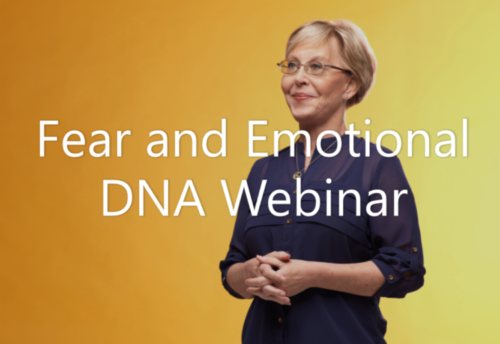Be a changemaker. Create your own Success DNA.
Success is delightful. It generates that feeling of can-do, a sense that we’re fulfilling our potential. It’s like a door has opened and we’re making a real difference. You find yourself wishing you could feel that way every day.
Yet as much as we crave success, for many people, success is a real fear. Some of us are afraid our success might suggest an inflated ego or a less spiritual path. We’re frightened of losing friends. By contrast, we seem to have no trouble creating our failures and repeating them with annoying frequency.
It’s as though we’re somehow sabotaging that which we desire most. We may find ourselves saying things like “It’s not meant to be,” or “There’s another plan for me.” We may look at our families and think, “It’s as though we are doomed all live mediocre lives.” Sound frustratingly familiar?
Your frustration is urging you to being your own journey to success.
As intrigued as we are by the struggles and successes of our ancestors, luck has absolutely nothing to do with it. Although we can create it based on our decisions about events in our lives, most of our Success (or Failure ) DNA is inherited, much like our Physical DNA. Patterns of success and failure are handed down through generations, created by our ancestors’ unique language, mindsets and actions. And what began as our history can become our present and unless we pay attention, also our future. In the world of what we might call interactive genealogy, you are the changemaker.
Can you mindfully create your own Success DNA?
The brain thinks, the heart feels. The brain creates a mindset and the heart responds with an emotion that reinforces the mindset. This becomes our truth, then it becomes the truth and we live by that without stopping to consider that it may be the decisions about the events in our lives or those of our ancestors, that have created our limitations.
However, what looks like failure in one generation can often morph into success in the next. Once we know what patterns live in our systems, we can change them. Using constellations and the systemic approach to explore these patterns, we can interactively gain new insights and mindfully create new patterns and new ways of being. With new insights, feelings, language and actions, come new successes.
Explore your Success DNA now with me.
Start your journey by diving into the events, decisions, language and feelings that live in your system with Flight of the Changemaker printable Success DNA worksheet.
{% ar_signup request 3 %}
If you want to dive deeper, come join me at Disney World, November 2-5 for an immersive and experiential Success DNA workshop. I promise you, it’ll be life-changing.




